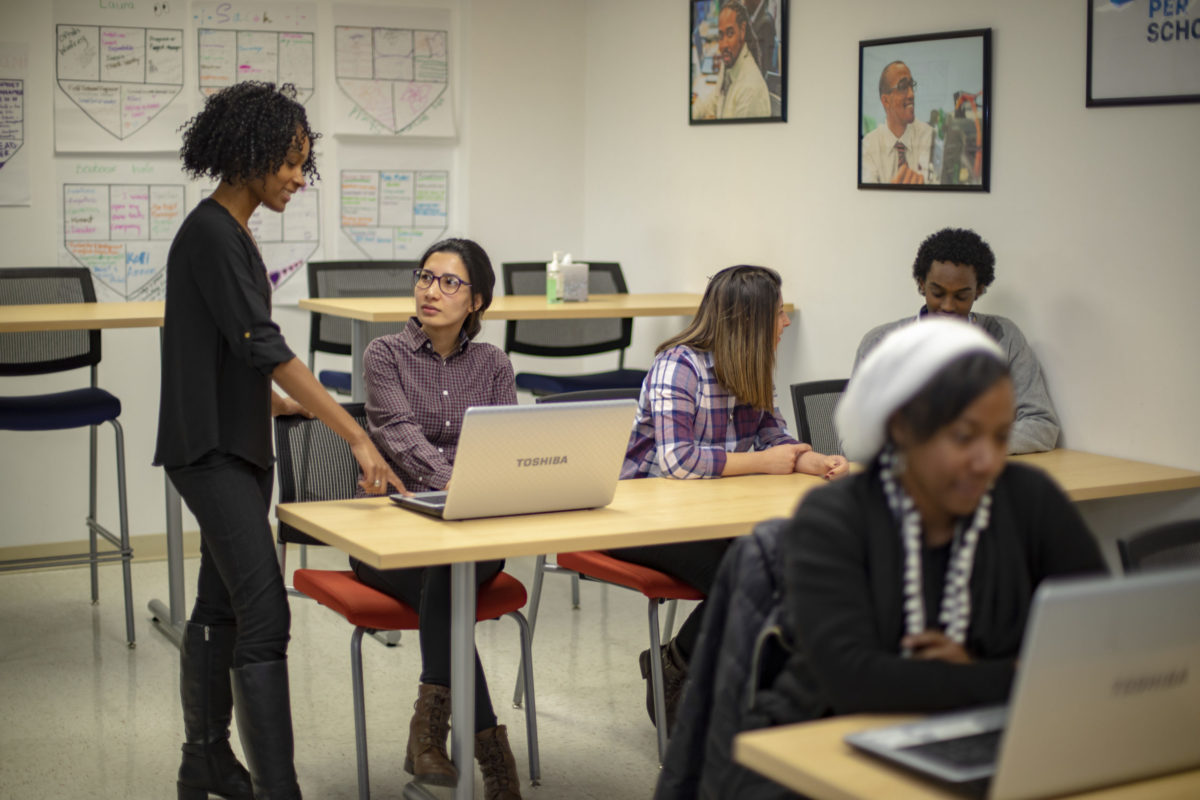As the DMV works to make the tech industry more reflective of all the people residing in the area, a new opportunity to boost women in the tech workforce is rolling out next year.
Starting in 2022, tech training nonprofit Per Scholas is launching a program in the National Capital Region that’s specifically aimed at helping women enter the tech industy in software development.
The remote-first Women in Technology Software Engineering Apprenticeship Program is a pilot. Per Scholas National Capital Region Managing Director Diane Duff said it’s designed with women in mind, and with the goal of understanding the barriers women face entering the industry.
Per Scholas first announced the program back in September, but hadn’t ironed out all specifics at the time. Now, we’ve officially got the deets:
- The 15-week program will launch in February of 2022.
- Applications open November 29.
- The course will be entirely remote.
- Women residing in Silver Spring, Montgomery County, Prince George’s County, Charles County, Washington DC and Northern Virginia are eligible to apply.
- Although they plan to accept 90 applicants overall, the first cohort will have 15 spots. Following cohorts will grow in size.
- The curriculum will be offered 9:30 a.m. to 2:30 p.m., with professional development and tutoring available on evenings and weekends.
- Following the training course, participants will be able to take part in a year-long paid apprenticeship via DiverseIT, scholarship to a bachelor’s degree or, potentially, full-time employment
Duff told Technical.ly that in applicants, Per Scholas will be looking for women with a real, deep interest in technology, some experience (although that could mean both self-taught or prior courses) and genuine enthusiasm for entering the industry. There will also be an assessment ahead of acceptance to make sure applicants are prepared.
“We want to make sure that the candidates coming into the program are ready and able to jump into that way of thinking about a problem,” Duff said. “Beyond that, it’s really just making sure that they are committed and available to participate in all aspects of the program.”
Changing systems
While such programs are aimed at bringing change, it’s long been noted that women are underrepresented in the tech world. Even in its existing programming, Duff also said that while Per Scholas students in the National Capital Region are strong in diversity, as 92% are learners of color, only 30% are women.
Women are more represented in industries such as retail, which doesn’t offer the same economic opportunities as tech, she noted, so providing software skills is especially crucial for women, who are more often pushed to be caregivers for their families.
“A thriving wage is critical to being able to participate in the workforce,” Duff said. “I mean, particularly for women, if you are not making enough money to support your household, what are we talking about?”
Per Scholas is offering the program through the Women in Apprenticeship and Nontraditional Occupations grant — which offered $350,000 to increase women’s employment. The organization was one of five recipients announced earlier this year by US Secretary of Labor Marty Walsh, who came to the local campus in September to make the announcement.
Bolstering women in the tech workforce, Duff said, is particularly important in light of all the stress and job uncertainty felt over the past year and a half. Making some changes in its current program offerings, she added, will hopefully inspire additional change to make tech more accessible for women. Overall, they’re hoping to pinpoint some of the specific barriers stopping women from entering tech.
“That’s really why we’ve developed this women in software engineering project — so that we can help scrape away those layers and really understand what’s at work here,” Duff said.







